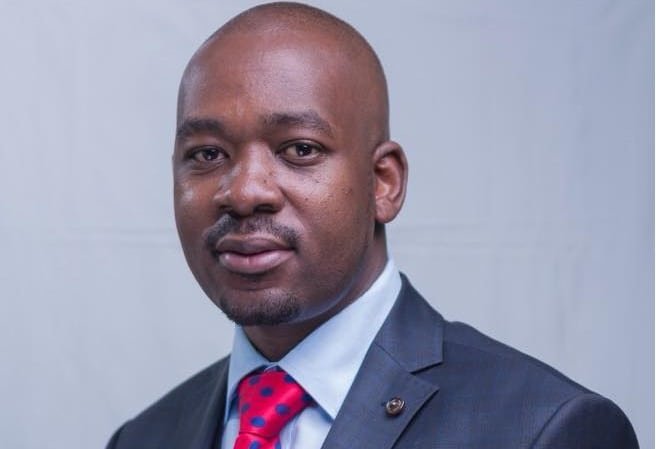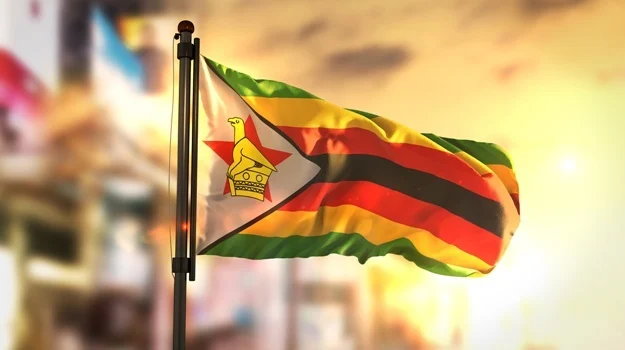Alec Marwa is a sturdy 26-year old Zimbabwean. I met him near his home in the town of Juliasdale in Nyamga Province. He was standing outside a maize farm, next to a blue planter. Marwa is a member of the community that recently welcomed a team of Europe-based journalists who had come to see for themselves the impact of EU development aid. He told me he had received help from an EU progress project to buy the tractor.
Read more: Zimbabwe: Six months under President Mnangagwa
Marwa is one of the many young Zimbabweans who have experienced unemployment. So, when the opportunity came for him to be an entrepreneur he seized it. Just as he was explaining that the time he was without a job had motivated him to try his hand at self-employment, the tractor roared into life as one of the farmers who hires it from Marwa fired it up for a quick demonstration.
Marwa stopped talking and looked on proudly. “I have quite a range of farmers who are willing to use this service. I have about 30 farmers per month. And they pay $50 dollars (€43) per hectare (2.4 acres).”
Marwa turned back towards me with a small smile when I asked ask him if he also farms himself.
“Yes, I have a small piece of land, just one hectare,” he told me.
EU Simbabwe Besuch (Cynthia R Matonhodze)
EU commissioner Nevena Mimica pays a courtesy meeting to Zimbabwean President Emmerson Mnangagwa
Marwa is one of the beneficiaries of the Zimbabwe Resilience Building Program. The program makes it easier for communities to cope with the effects of climate change, such as prolonged droughts and shorter rainy seasons. These changes mean they have to plant their crops faster than before. Alec Marwa helps by providing planting services.
Lowering the bar for beekeepers
The group then moved on to a different area of the progress project where Mrs Chimfumbo, a bee farmer, was waiting with jars of natural honey. She spoke animatedly in Shona and the translator told us that the progress program helps women in the community to get into beekeeping after teaching them how to use the Kenyan top bar beehive method.
“We thought it was a man’s job. Because the men were using the log method,” Mrs Chimfumbo said.
This method entails hollowing out logs which are then hung high up in trees. With the Kenyan top bar method, beekeepers no longer have to climb trees but use a waist-high container from which individual bars of honey can easily be extracted.
Mrs Chimfumbo told us that in addition to harvesting honey, they also sell beeswax to cosmetics manufacturers.
EU ready to speed up support
This field trip was part of the first high-level visit to Zimbabwe by an EU commissioner since 2009. The current EU Commissioner for International Cooperation and Development, Neven Mimica, was there to show the bloc’s solidarity with Zimbabweans .
Two important events preceded the visit. The first was the so-called ‘Fast-track Land Reform Program’ that began in 2000 which pushed white farmers off their land to make way for black Zimbabweans. The second was the controversial election result in 2002, which was disputed by the late opposition leader Morgan Tsvangirai. The EU suspended its financial contributions to the Zimbabwean government between 2002-2014. The EU also imposed sanctions on some of Zimbabwe’s ruling elite. Today, only two Zimbabweans remain on the list: Robert Mugabe and his wife, Grace. An arms embargo also remains in place.
Read More: Mugabe celebrates 93rd birthday, praises Trump
The EU and the Zimbabwean government have been development partners since 2015. So far, the European Union has disbursed €234 million to various sectors including health, agriculture, and governance. “I am here to show to the Zimbabwean people and authorities that the EU stands ready to accelerate its support to their transition towards democracy and prosperity,” Commissioner Mimica said during a press briefing in Harare.
Believing in Zimbawe
These were not empty words. During the EU visit, EU-funded health and youth programs for a total amount of 23 million euros were launched. “As Zimbabwe opens a new chapter in its history, we are putting our trust in the authorities to seize this unique opportunity and address the political and economic challenges in the country,” Mimica said.
EU Simbabwe Besuch (Cynthia R Matonhodze)
(L-R) Zimbabwean health minister Dr. David Parirenyatwa, EU commissioner Nevena Mimica, UNICEF representative to Zimbabwe, Dr. Mohamed Ayoya sign agreement to work together
For young people like Alec Marwa and small-scale farmers like Mrs Chimfumbo who have benefitted from EU development projects, this financial boost will go a long way.
As Zimbabwe emerges from isolation, the EU has provided €11 million to support the country’s election commission ahead of the general elections due later this year. One of the EU’s requirements for continued support is the provision of free, fair and credible elections.
Shortly after President Mnangagwa came to office six months ago, he proclaimed that Zimbabwe is now open for business. With their tractors and beehives, the farmers of Juliasdale are contributing to a new mood of optimism in the country. A mood that observers and Zimbabweans alike hope will continue after the 2018 elections.








